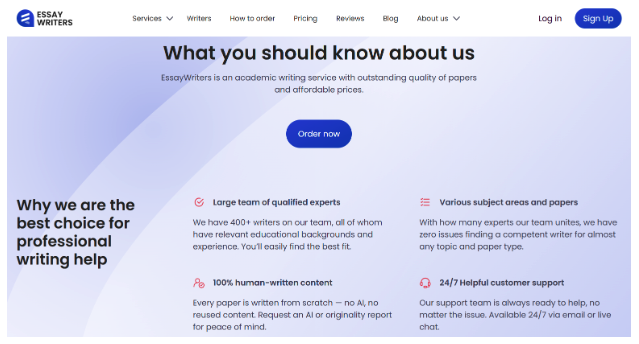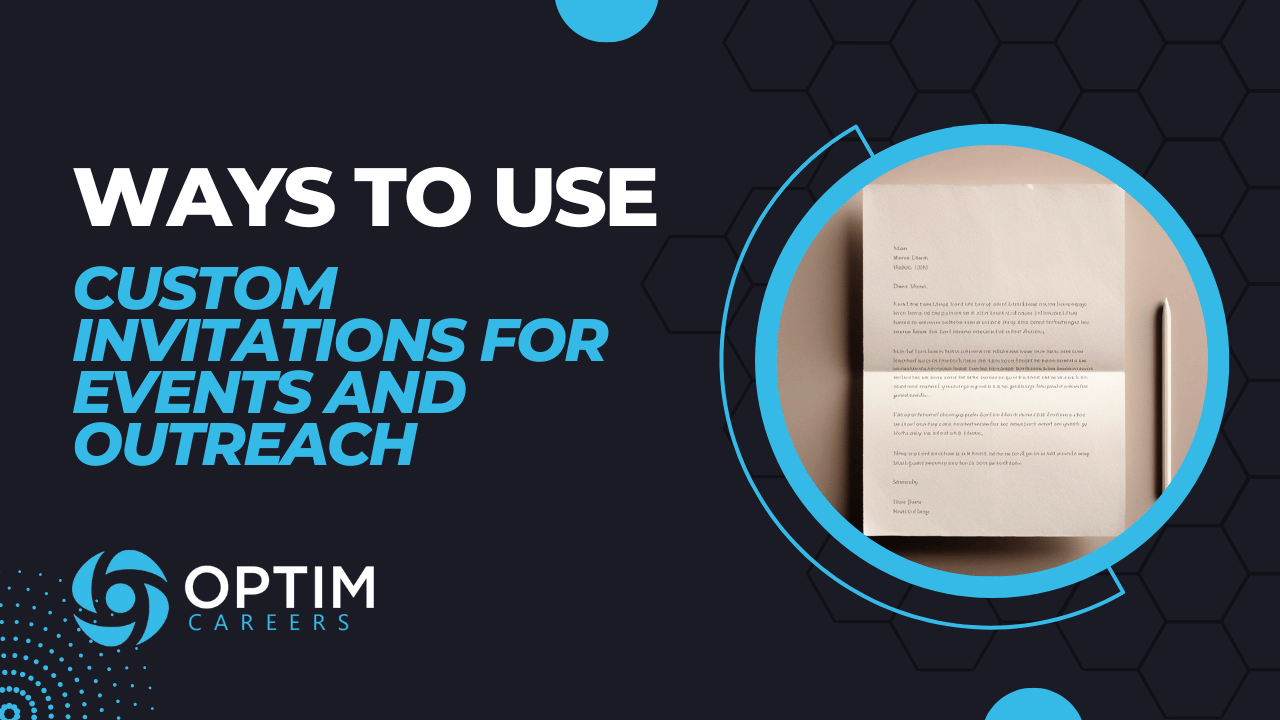What Are You Passionate About [Do 4 Things]
I’m always half tempted to answer with making money or not being at work, but that wouldn’t help me get a job now, would it? Look, here’s the reality of the situation. You may not be passionate about anything work-related, and that’s okay. But for those of us who work to make a living so we can explore our passions outside of work, this question can be a bit stress-inducing.
Why Do Interviewers Ask This Question
If you want to answer the question well, you have to know why you’re being asked. I’ve sat in the interview room with thousands of people and worked with hundreds of hiring managers throughout my recruiting career. Here’s why they ask the question - it’s not just to find out about your personal life.
Testing Intrinsic Motivation
The majority of hiring managers I’ve worked with value intrinsic motivation. Intrinsic motivation is when you perform an activity because it inherently satisfies you or you enjoy doing it, versus external rewards and pressures.
I’d be lying to you if I didn’t tell you that candidates who display intrinsic motivation for doing the job usually get ahead of others who don’t. External factors like money only motivate people for so long and no one wants to be lighting fires under your @ss to get you to perform.
Clues About How to Manage You
The answer to this question often gives the interviewer clues about what it might be like to manage you. Where will you do your best work? What type of work might you go the extra mile on? Do you like the work you do in addition to being good at it?
If you’re likely to be satisfied by your work, you might be more inclined to stay with the company longer, be more engaged with your work, and be more productive.
Get To Know You
Sometimes there is no underlying motivation. I would say one-third of the time, they are just asking because they want to get to know who you are personally and professionally. Skills and experiences being equal, most managers prefer to hire those they find pleasant to be around.
I even had one interviewer tell me they didn’t want to work with workaholics and wanted to know people had passions outside of work. This is a rare instance in my experience, but it does happen.
Alternative Ways You Could Be Asked This Question
What energizes you?
What do you like to do outside of work?
When you look back on a typical work week, what did you enjoy most?
What are you most enthusiastic to do on the job?
What do you do best?
What do you find most engaging?
What kind of work makes you most excited?
What motivates you?
What are your hobbies?
How to Answer What Are You Passionate About
If you remember nothing else from this article, remember this, never answer with nothing. If you can’t tell someone at least one thing you are passionate about, this is a huge red flag. With that being said, here is the best way I’ve seen to answer this question.
Pick a Passion That Relates to the Job
If you are passionate about an aspect of the job, pick that - especially if it’s a major part of the job. I will caution you when picking a passion that is a minor part of the job. Some interviewers may have concerns with that because you’ll be motivated to do minor parts, but not the main duties they need you to do. Whenever possible, pick a core function of the job that you are interested in and excited about.
If you can’t do that genuinely (and let’s face it, not every job excites us to that level), pick a passion that connects with their customer’s interests or their product or service. For example, if you’re applying at a company that manufactures mountain bikes and you like to ride your bike on dangerous trails, that’s a great choice.
If you still can’t find an authentic passion with those two ideas, look at the job description and see what traits and characteristics they are asking for. You can pick a passion that has nothing to do with their product or the job, but that you can use to show you have those traits and like activities where you can use them.
For example, if I was applying for a financial analyst job, I might talk about my love of blogging and how one of my favorite parts is digging into all the data around keyword searches and applying that to my writing strategy.
Bottom line - don’t fake it. This needs to be a real passion because when they ask follow-up questions, it will be obvious if you lied.
Tell Them How You Became Passionate
Start off by telling them what you are passionate about and how you became interested in that thing. Alternatively, you could tell them why you are passionate about it.
I have a friend who is very passionate about career coaching and dispelling myths about hiring. She became passionate about this after her brother passed away during a prolonged job search. She remembers the depression that caused and doesn’t want anyone else to have to go through that.
Now your story may not be as earth-shattering as that one, but a true story helps people connect with you and understand your motivations.
Give Examples
Next, give examples of what you have done with your passion. This may include your involvement with organizations, projects you’ve worked on, classes you’ve taken, or anything that involves pursuing your passion.
If you can use examples that tie your passion to work you’ve done in the past, that will go a long way in helping the interviewer connect the dots.
Prepare For Follow-Up Questions
Once you are finished, be prepared for the interviewer to ask questions based on whatever you said. If they share the passion, they may ask for more details out of genuine interest. That’s a great sign (as long as you picked a real passion).
This is why it’s important to pick a real passion that you know something about. If you tell them your passion is reading, you better have read something recently because they’re likely to ask you about what you’ve read. If you say it’s hiking, you should know some good hiking places around you, because they may ask. I probably wouldn’t pick those two as my answer, but you get the point.
Also, be prepared for questions about your examples. If you discuss something that is also relevant to the job you’re interviewing for, it’s likely that the interviewer will use your answer to transition to a question about your experiences and past employment.
Depending on what you said and how much detail you gave, here are some common follow-up questions you might get:
How do you incorporate this passion into your daily life/work?
When did you first discover this passion?
What specific steps have you taken to develop this interest further?
Can you tell me about a specific project or achievement related to this passion?
How has this passion influenced your career choices?
What challenges have you faced while pursuing this passion, and how did you overcome them?
Where do you see this passion taking you in the future?
How do you think this passion would benefit our company/team?
What's the most important lesson you've learned while pursuing this interest?
How do you stay current or continue learning about this topic?
Do Mock Interviews
Okay, this one really isn’t part of how you would answer, but it is important to practice your answers. The best tool I’ve found for mock interviews is by far Final Round AI. For the price of a typical coaching session, you can do unlimited mock interviews in this app. At the end of your mock session, it gives you an incredibly detailed report outlining how you can improve your content and the delivery of that content.
What Are You Passionate About Sample Answers
Here are some sample answers I’ve heard over the years and liked. Feel free to take anything, use it, and make it your own.
Accounting
I'm passionate about solving complex puzzles and finding patterns in numbers, which is what initially drew me to accounting. This passion developed during my college years when I volunteered to help manage the finances for our student organization. I found myself actually enjoying the process of reconciling accounts and creating financial reports, which surprised even me at first.
What really excites me is the investigative aspect of accounting - tracking down discrepancies and ensuring everything balances perfectly. For example, in my current role, I recently spent several hours analyzing a series of complex transactions to find a $500 discrepancy. When I finally discovered the root cause and corrected it, it was incredibly satisfying.
Sales
I'm passionate about building meaningful relationships and driving results through strategic problem-solving. I realized this passion during my first sales role, where I discovered that understanding a client's challenges and matching them with a solution created incredible value for both parties.
What really excites me is the consultative aspect of sales - analyzing business challenges and crafting custom solutions that make a real impact. For example, in my current role, I worked with a client who was struggling with their operational efficiency. By thoroughly understanding their pain points and processes, I was able to present a solution that increased their productivity by 40%. The feeling of seeing a client succeed and knowing I played a part in that transformation is incredibly satisfying.
Customer Service
I'm passionate about helping people solve problems and creating positive experiences. This started when I worked at my local library's help desk during college, where I discovered how rewarding it is to turn someone's frustration into relief and gratitude. What really excites me is the detective work involved in customer service - listening carefully to understand the real issue, then finding creative solutions that work for both the customer and the company.
For example, last year while working at a retail store, I helped an elderly customer who was struggling with our online return system. Instead of just processing the return, I took the extra time to walk her through how to use our digital tools. She was so appreciative that she became a regular customer and even referred her friends to our store. These kinds of interactions, where I can both solve immediate problems and empower people for future success, are what make customer service deeply fulfilling for me.
Teaching
I'm passionate about learning and helping students discover their potential. This passion began during my college years when I started tutoring struggling readers at our local elementary school. Seeing a student's face light up when they finally understood a concept or mastered a new skill was incredibly rewarding.
What really excites me about teaching is creating those "aha moments" for students through innovative and personalized approaches. For example, in my student teaching experience, I worked with a fourth grader who was struggling with fractions. By incorporating hands-on activities and some real-world examples like cooking measurements, I was able to help him not only understand the concept but actually enjoy math. Within a month, he went from dreading math class to eagerly participating.
Customer Success
I'm passionate about helping businesses connect the dots and grow. This started when I worked at a SaaS company's support team during my early career, where I discovered how rewarding it is to not just solve problems, but to truly partner with customers to help them succeed.
For example, last quarter while working as a customer success manager, I noticed one of our enterprise clients was only using about 40% of our platform's features. I proactively scheduled a workflow analysis and training session, helping them implement our advanced reporting tools. This resulted in a 35% increase in their platform usage and they ended up expanding their contract by $50,000 annually. These kinds of interactions, where I can transform a basic client relationship into a strategic partnership while delivering measurable value, are what truly fulfill me professionally.
Recruiting
I love getting to know new people and connecting people. I would say I discovered this passion during my time as a peer career advisor in college, where I helped a fellow student get a job with a company that partnered with our career center.
What excites me about recruiting is the human element and problem-solving aspect. For example, in my current role, I worked with a hiring manager who was struggling to fill a specialized technical position for three months. By taking time to truly understand the role requirements and thinking creatively about transferable skills, I identified and successfully placed a candidate from an adjacent industry who has now become one of their top performers.
Project Management
I'm passionate about using data analytics to drive project decisions and improve team performance. This interest really took hold during my first project coordinator role. My boss was really big on data-driven decisions and I had the opportunity to work alongside her to create visual dashboards and track metrics for a variety of different projects.
What really excites me is turning project data into actionable insights. For example, in my current role, I developed a custom tracking system that analyzed task completion rates across different project phases. The data revealed that our planning phase was consistently running 30% longer than estimated, which created a cascade effect on later deliverables. By presenting this data to stakeholders and adjusting our timeline templates, we improved our on-time delivery rate from 65% to 92% across all projects last quarter.
I've continued pursuing this interest by getting certified in PowerBI and Tableau, and I regularly create tutorials for my team on how to better use data visualization tools in their project reporting.
What Are You Passionate About Recommended Reading
How to Use AI For an Interview
What Are Your Salary Expectations [3 Expert Answers]
Cole Sperry has been a recruiter and resume writer since 2015, working with tens of thousands of job seekers, and hundreds of employers. Today Cole runs a boutique advisory firm consulting with dozens of recruiting firms and is the Managing Editor at OptimCareers.com.
Get Smarter About Job Search
Members get exclusive job search analysis, a curated coaching feed, and on-demand coaching.













